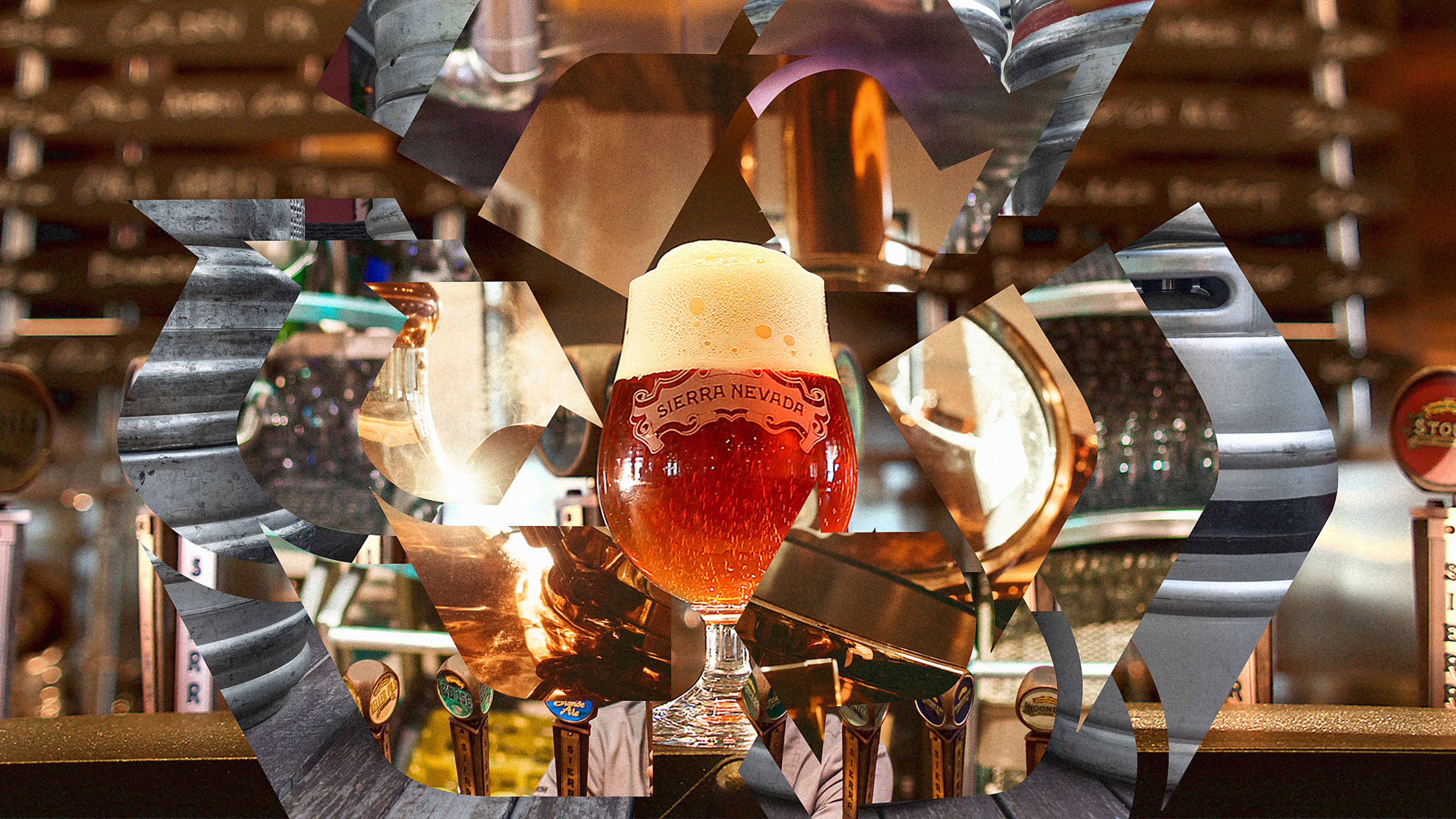Craft breweries have been booming, but even those that are small in size can generate a lot of waste. Recently, that’s driven some of those breweries to look for more creative solutions to getting rid of everything from malt sacks to shrink wrap to can carriers. The result is a series of collaborative recycling efforts springing up across the country, where small businesses—usually other breweries, but not always—are helping one another recycle and reuse their waste.

In North Carolina, Sierra Nevada Brewing wanted to find a way to keep their hard-to-recycle items out of landfill. The brewery worked with the Asheville Brewers Alliance to gauge interest in the community (there are 80+ breweries in the Asheville area) and crafted a proposal. In August 2020 they got the great news that American Recycling won a grant for over $60,000 dollars to implement their idea for a co-op. The grant would cover up to 85% of the project costs, and the co-op members (there are now 22) chipped in for the rest. The result was a dedicated drop point at a local recycling facility that brewers and maltsters can use. “Sonoco [which now operates the facility with the co-op’s drop-off spot] provides a way for all of us [to] consolidate these materials,” says Pierce Schwalb, sustainability program manager at Sierra Nevada Mills River Brewery. “They work hard to find end markets for them.” With the right equipment at the facility—like balers for shrink wrap and malt bags, and a chipper for polyester strapping—materials that could otherwise end up as waste are able to be recycled. Sierra Nevada estimates that more than 600,000 pounds of material have been diverted from landfills as a result of the program.
Meanwhile, in Maine, Allagash Brewery runs another recycling co-op, collecting materials like grain bags and can carriers (the plastic tops that hold four- and six-packs together) from local businesses, both in and out of the beer industry. “We weigh those items before separating them and putting them with like materials,” says Zoe Malia, the brewery’s environmental sustainability coordinator. The materials are then bailed into compact cubes, so that they can be shipped to be properly recycled. Allagash gets much of its grain delivered via railroad, which helps cut down on its own grain bag consumption, but there’s still specialty malts arriving in bags, amounting to more than 1,000 50-pound bags each month.
Since starting the co-op in March 2021, Malia and the team have learned a lot. “We’ve seen a lot of interest from our community and businesses looking to get involved,” she says. “While that was a wonderful way to start, it also quickly showed us that our capacity to accommodate partners was not infinite.” With that in mind, the team narrowed their drop-off window to three hours each Friday, and created a weekly sign-up form, so they have visibility into who’s dropping off what. The brewery is continuously looking to evolve the program so that it works for all the members; it recently sent out a survey to better understand what they appreciated about the program and what areas of waste management they still have challenges with.
An initiative in Chicago, meanwhile, seeks to get consumers directly involved with saving one specific hard-to-recycle item from the landfill. Craft for Climate focuses on reusing the can carriers manufactured by Oregon-based company PakTech. Founder Alex Parker says he was inspired by a can carrier recycling program in New England and thought Chicago’s vibrant beer scene made it the perfect place to try something similar. The can carriers are made from 100% recycled HDPE, and while they are recyclable, they’re small and flimsy, which means they don’t always end up back in use after consumers place them in their home recycling bins. Parker points out that since many of them are black—and therefore may not be picked up by infrared sensors at recycling facilities—they’re often not recycled, despite consumers’ best intentions. “This is a problem,” Parker says. “We estimate in Chicago, there are about 8 million of these things being processed through the area every year, and the vast majority of them are going to the landfill.”
Parker works with a recycling organization called the Resource Center to get the can carriers to their next destination. The co-op, which launched in May 2022, has around 45 participants, including breweries and bottle shops, and is always recruiting new participants to collect the PakTechs. There are four regional collection hubs that individual breweries can drop PakTechs off to, and then the recycler picks up from the hubs when a box is full.
Parker says he tells breweries to advertise the service in the taproom, include it in customer newsletters, and post about it on social media. Incentives also work well. “Some breweries offer a taste of beer equal to the height of the PakTechs you return,” Parker says, adding that during COVID-19, some people had tall stacks of them built up.
Recycling co-ops aren’t just helpful for the brewing industry, as the Allagash co-op has demonstrated. “The cool part for us has been the variety of businesses that participate,” says Malia. There’s even a local solar-panel installer that saves plastic dividers and drops those off with us in large batches.” For businesses interested doing something similar, Malia recommends gauging interest beforehand. “Building that momentum early has really helped us keep the interest and participation consistent,” she says, adding that the co-op has also created a way for the brewery to interact with other businesses in their community. “We’d highly recommend it.”
Recognize your brand’s excellence by applying to this year’s Brands That Matter Awards before the final deadline, June 7.
Sign up for Brands That Matter notifications here.
